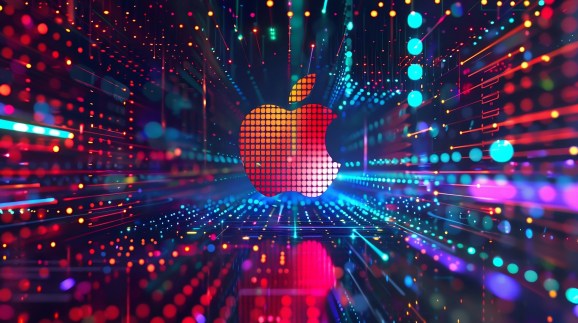Apple, in collaboration with the Swiss Federal Institute of Technology Lausanne (EPFL), has released a public demo of their 4M AI model on the Hugging Face Spaces platform. This launch comes seven months after the model was initially open-sourced, and represents an important step in expanding access to sophisticated AI technology. The public demo allows a wider range of users to interact with and evaluate the capabilities of the 4M model firsthand.
The 4M (Massively Multimodal Masked Modeling) demo showcases a versatile AI model capable of processing and generating content across multiple modalities. Users can interact with the system to create images from text descriptions, perform complex object detection, and even manipulate 3D scenes using natural language inputs.
This release marks a significant departure from Apple’s traditionally secretive approach to research and development. By making 4M publicly accessible on a popular open-source AI platform, the company is not only demonstrating its AI capabilities but also courting developer interest and fostering an ecosystem around its technology.
Siri’s smart upgrade: Implications for Apple’s AI-powered
future The timing of this release is significant in the context of recent developments in the AI landscape. While companies like Microsoft and Google have been making headlines with their AI partnerships and offerings, Apple has been quietly but steadily advancing its own AI capabilities. The 4M demo showcases Apple’s ability to innovate in this critical tech domain, aligning with the company’s recent market performance.
Since May 1st, Apple’s shares have seen a remarkable 24% increase, adding over $600 billion in market value. This surge has positioned Apple as one of the top performers in the tech sector, second only to Nvidia in terms of value increase. The market’s response suggests that Apple is now being viewed as an
“AI stock,” a perception reinforced by its recent partnership announcement with OpenAI.
What sets 4M apart is its unified architecture for diverse modalities. This approach could lead to more coherent and versatile AI applications across Apple’s ecosystem. Imagine Siri understanding and responding to complex multi-part queries involving text, images, and spatial information, or Final Cut Pro automatically generating and editing video content based on natural language instructions.
However, the release of 4M also raises important questions about data practices and AI ethics. Apple has long positioned itself as a champion of user privacy, a stance that could be challenging to maintain given the data-intensive nature of advanced AI models. The company will need to navigate this carefully to maintain user trust while pushing the boundaries of AI capabilities.
From iPhones to Vision Pro: Apple’s AI revolution unfolds
This public demo release of 4M is particularly intriguing when considered alongside Apple’s recent AI strategy unveiled at WWDC. While Apple Intelligence focuses on personalized, on-device AI experiences across iPhones, Macs, and the Vision Pro headset, 4M hints at the company’s long-term AI ambitions. The model’s ability to manipulate 3D scenes based on natural language inputs could have exciting implications for future iterations of the Vision Pro and Apple’s augmented reality efforts.
The timing of the 4M demo launch, following closely on the heels of WWDC, suggests a coordinated effort by Apple to establish itself as a major player in the AI industry. By showcasing both consumer-ready AI features through Apple Intelligence and cutting-edge research capabilities with 4M, Apple is demonstrating its commitment to AI across the entire development spectrum.
Apple’s dual approach—practical AI for consumers and cutting-edge research with 4M—signals a clear intent: to lead the AI revolution while maintaining its hallmark user privacy. As these technologies mature and integrate across Apple’s ecosystem, users may experience a subtle yet profound shift in how they interact with their devices. The real test will be how effectively Apple can deliver on its promise of advanced AI while maintaining its commitment to user privacy and seamless experiences.
Source: venturebeat.com


